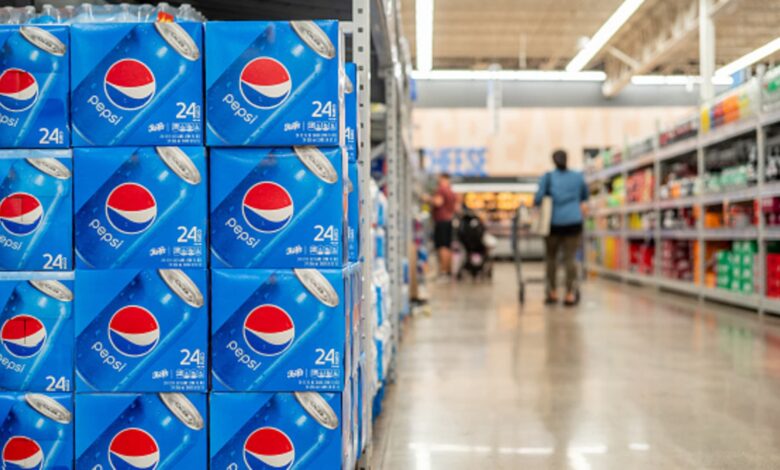Other
How I’m approaching the market after the attack on Israel

It’s terrible to be clinical after watching horrifying pictures and having real feelings about the tragedy in Israel this weekend. But I have no choice but to be. Because as terrible as what happened is, it didn’t happen here and it didn’t happen in a place that directly impacts the stock market. Yes, oil will rally, but there will not be an oil embargo as there was after the 1973 Yom Kippur War to punish those countries that supported Israel. It’s not clear what can happen now. But it is difficult to believe that there will be another embargo when Israel was so clearly not the aggressor. Am I saying it doesn’t matter? Of course not. But is it really a sell-able event? Do you sell American stocks off of something tragic that happens in Ukraine or Israel or to any of our allies? It’s difficult to compute how you can justify it unless Treasurys get sold aggressively on the event because it is perceived as being inflationary. Do I think that we will be back considering earnings in a short period of time? Yes. Does that mean we will be thinking about PepsiCo (PEP), which reports Tuesday, by the start of the week? Probably before then. Is that because we are all rapacious capitalists? No, it is because we have the ability — good or bad — to focus on what’s existential for our country, not for Israel. What will the focus be on when it comes to PepsiCo? It will be what I think will be regarded as something that’s not going to be taken seriously, most likely a denial that the company has seen any decline in Frito Lay orders since the GLP-1 class of drugs has been introduced. That will be in direct conflict with what Walmart (WMT) said about a slowdown. That one comment by Walmart is what brought this cohort down beyond where bonds had already taken them. I think we will get a spirited defense that business is better than ever because, well, it’s PepsiCo and it has a pretty consistent worldwide base of its Frito Lay business. Will people choose to believe PepsiCo over Walmart? I think people will begin to debate how much of a dent these drugs will really put into the processed food-and-beverage economy. The drugs themselves do not stop you from eating anything. You just don’t eat as much. There are so many variables with these drugs — who will reimburse you for $1,000 a week drug if you don’t have health problems that it counteracts? Will everyone actually want to take them if they really deter pleasure to some extent, the pleasure that comes, say from a steak and a cabernet? I can go on and on about the permutations but I can tell you this: the high watermark for junk food consumption in this country might be upon us and that is a bitter pill to swallow for those companies that thrive on making those kinds of foods. Funny though, if you sell, say Tyson Foods (TSN), arguably the worst-run food stock in the world, you may be making a mistake. The doctors are more worried about your lack of a desire to eat when you take these drugs because they reduce all mass, muscle included, and if you don’t eat enough protein, you will wither faster than most people realize. If it is the high watermark of junk food does that mean you have to sell PepsiCo? It’s a worldwide company and I would believe that it can pivot resources to greater markets for their goods. However, it might not matter. PepsiCo suffers from three strikes: overvaluation in the face of inflation with a 21-times price-to-earnings multiple, the GLP-1 whammy, and a dividend that’s only 3%. I am dwelling on this one because I think that it is emblematic of what I see happening — a continual outflow of companies that have very little actual revenue growth but excellent bottom-line growth. So let me leave you with a battle, a battle between the two most important sets of initials in the investing world right now — the GLP-1s and the ChatGPTs, which will be on display when Adobe (ADBE) holds its investor meeting on Oct. 10. If push comes to shove, take Adobe over PepsiCo. (See here for a full list of the stocks in Jim Cramer’s Charitable Trust.) As a subscriber to the CNBC Investing Club with Jim Cramer, you will receive a trade alert before Jim makes a trade. Jim waits 45 minutes after sending a trade alert before buying or selling a stock in his charitable trust’s portfolio. If Jim has talked about a stock on CNBC TV, he waits 72 hours after issuing the trade alert before executing the trade. THE ABOVE INVESTING CLUB INFORMATION IS SUBJECT TO OUR TERMS AND CONDITIONS AND PRIVACY POLICY , TOGETHER WITH OUR DISCLAIMER . NO FIDUCIARY OBLIGATION OR DUTY EXISTS, OR IS CREATED, BY VIRTUE OF YOUR RECEIPT OF ANY INFORMATION PROVIDED IN CONNECTION WITH THE INVESTING CLUB. NO SPECIFIC OUTCOME OR PROFIT IS GUARANTEED.
Pepsi sodas displayed for purchase at a Walmart Supercenter in Austin, Texas, on Dec. 6, 2022.
Brandon Bell | Getty Images
It’s terrible to be clinical after watching horrifying pictures and having real feelings about the tragedy in Israel this weekend.
Source link
Post Views: 105



